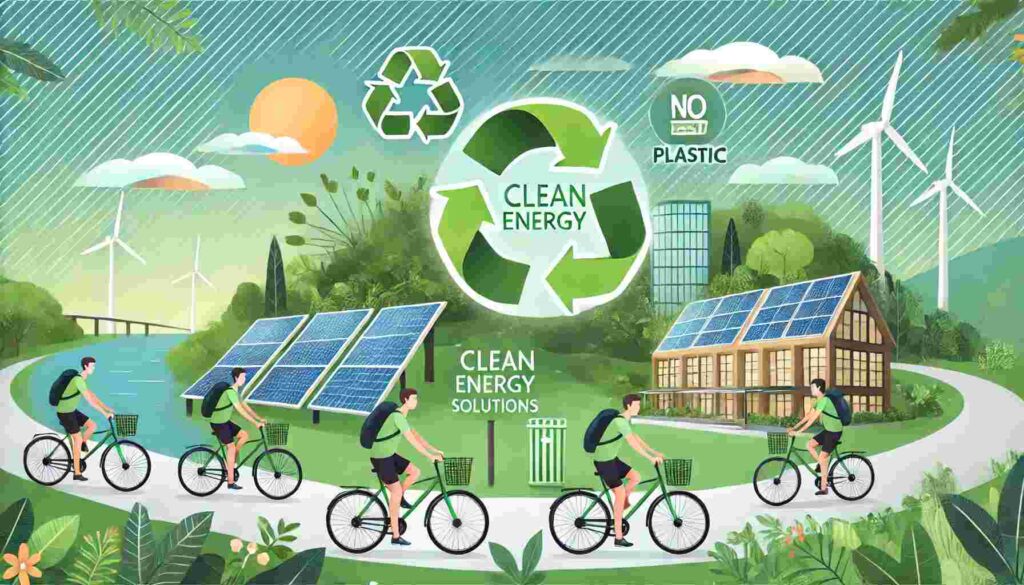As concerns about the environment continue to grow, eco-friendly travel, also known as eco travel, has become a popular choice for many travelers. But what exactly is eco travel, and why should you consider it? Whether you love to explore the world or are just starting your travel journey, eco travel offers a way to reduce your environmental impact while still enjoying new destinations. In this article, we’ll dive deep into the benefits of eco-friendly travel and why it’s important for the planet, local communities, and even for you as a traveler.
What is Eco Travel?
A type of eco-travel, sustainable travel focuses on leaving as little impact as possible on the environment and supporting local communities. It reduces waste, uses resources efficiently, and preserves the local cultures and environments. Sustainable aircraft are designed for eco-friendly travelers who do not want to leave a carbon footprint once they reach their destination.
Why Eco Travel Matters?
There are several key reasons why eco travel is so important, and they include:
- Environmental Protection: Reducing the damage to nature and helping conserve wildlife and ecosystems.
- Support for Local Communities: Promoting fair economic practices that benefit local people.
- Resource Conservation: Making better use of natural resources like water and energy.
- Cultural Respect: Encouraging the preservation of local traditions and cultures.
- Personal Growth: Creating deeper connections with the world and raising awareness of environmental issues.

Benefits of Eco Travel for the Environment
Reduces Carbon Footprint
Carbon offsetting is one of the significant ways eco-travel can help the environment. Some of the worst types of carbon dioxide are produced by air transport, so eco-conscious travelers can also help reduce their carbon footprint as much as possible by choosing alternatives like trains, buses, or biking. If you must fly, most airlines now provide carbon offset programs that let travelers counterbalance their emissions by paying to support various environmental projects.
Protects Wildlife and Ecosystems
It is also an eco-travel to preserve the natural environment. Responsible travel is one of the ways we can help our mind-blowing planet retain the wildlife and ecosystems in these places. For example, eco-lodges help tourism without damaging these regions’ animals, plants, or natural beauty. Nature Reserve National Park is a beautiful place to explore without destruction.
Reduces Waste
Eco travel is all about decreasing waste—this includes single-use plastics. Most people have realized the importance of avoiding plastic waste, so we always recommend that our customers carry reusable water bottles, food containers, and shopping bags. Choosing to stay in eco-friendly accommodation and making recycling and environmentally friendly waste management part of the routine when traveling can help reduce our environmental footprint, ensuring that travel destinations remain clean and beautiful for everyone who visits.
Conserves Energy and Water
Eco-friendly hotels and lodges often use renewable energy sources such as solar panels and wind turbines. They also implement water-saving technologies like low-flow showers and rainwater harvesting systems. By staying at these places, travelers can support businesses that prioritize sustainable energy use, helping reduce reliance on fossil fuels and minimizing water waste.
Economic Benefits of Eco Travel for Local Communities
Boosts Local Economies
Supporting locally helps Small Communities. Eco travel means that tourists spend more of their money close to where they are visiting, which will help smaller enterprises and local communities. Affluent travelers offset that impact by staying in locally owned eco-lodges, consuming meals at family-run food joints and markets, and buying handmade mementos. This helps grow local entrepreneurs and increases the region’s economy.
Creates Jobs and Ensures Fair Wages
Eco-travel is a good source of income for those working in rural or far-flung areas with fewer jobs. For our low employment economy/the guy who is, as they say, promising to work his employees, travelers are pushing them toward fair labor hiring practices. One example is that many eco-lodges pay the workers their fair wages, plus they hire from the local community, so those people have work and can earn money.
Preserves Local Cultures
Eco-tourism keeps many local communities from losing their traditions, culture, and heritage. In the case of eco-travel, this extends into experiences that give visitors a taste of the local customs perhaps learning to weave at a traditional crafts center or cooking up some regional cuisine after participating in an afternoon dance-along. This kind of cultural exchange ensures these traditions will survive so travelers hundreds of years from now can still have a richer and more authentic experience.

Benefits of Eco Travel for Travelers
Offers Meaningful Experiences
Unlike conventional tourism, eco-travel establishes deeper connections with the places you visit. Rather than jetting between locals for selfies, eco-travel means that you can get involved with things like volunteering for community projects, learning new skills, or being at one with a natural wonder. These experiences often make guests appreciate the destination and give them memories to last a lifetime.
Improves Health and Well-Being
Spending time hiking, cycling, and immersing yourself in the world of treasure, that is, nature reserves, is beneficial not only to your own physical and mental health but also to your own physical and mental health. Nature time is associated with decreased stress, increased happiness, life satisfaction, and well-being. Either hiking in a nation’s park, walking on a tidally locked beach, being under the stars, or having plenty of natural activities during eco-travel.
Raises Awareness and Encourages Sustainable Habits
Sustainable initiatives such as eco travel raise awareness of the effects of traveling on our planet to encourage travelers to change their behaviors. When we witness the real-life outcomes of pollution, deforestation, or climate change, many travelers return home more determined to live less destructively. This could be simplistic things such as buying less plastic, turning off the tap, or considering purchasing from an eco-friendly shop to make a difference in their life.
Eco Travel Tips: How to Travel Sustainably
Stay in Eco-Friendly Accommodations
When you book your stay, choose a hotel, lodge, or hostel dedicated to sustainability. Most eco-lodges are green-certified and employ renewable energy, water conservation, and recycling. Green Key or EarthCheck certifications: Some also count on certifications such as Green Key that guarantee their work system respects the environment.
Choose Slow Travel
Avoid the rush to see it al; takee time to truly absorb a single place. Slowing travel… helps you offset your carbon footprint and makes you taste the destination more deeply. The opportunity to learn about local culture, meet new people, and enjoy nature without being rushed.
Support Local Businesses
Whenever possible, choose local over global. This means dining at locally owned restaurants, buying from local artisans, and booking tours with eco-friendly operators who are invested in protecting the local environment. Supporting these businesses ensures that your money helps local communities and contributes to their economic development.

Pack Light and Use Eco-Friendly Products
Carrying less luggage means needing less fuel for transportation, especially in an airplane. If traveling, bring reusables such as water bottles, cloth bags, and utensils to reduce dependence on single-use plastics. Opt for eco-friendly toiletries and travel gear from sustainable sources whenever you can.
Be Mindful of Wildlife
When Travelling, Always Respect Wildlife and Natural Habitats. Stay on marked paths; do not feed or touch wildlife, and leave no trace. Traveling eco is a way to enjoy nature without harming it. It means that while traveling, you do actions that protect the environment and its inhabitants.
Conclusion
Eco-friendly travel is more than just a trend—it’s a meaningful way to explore the world while protecting the environment and supporting local communities. Eco-travel benefits are clear: it helps reduce your carbon footprint, conserves wildlife and natural habitats, and creates positive social and economic impacts on the places you visit. By making conscious travel choices, you can enjoy incredible adventures while helping protect our planet for future generations. Whether new to eco-travel or a seasoned eco-conscious traveler, remember that every small step counts toward a more sustainable future.



